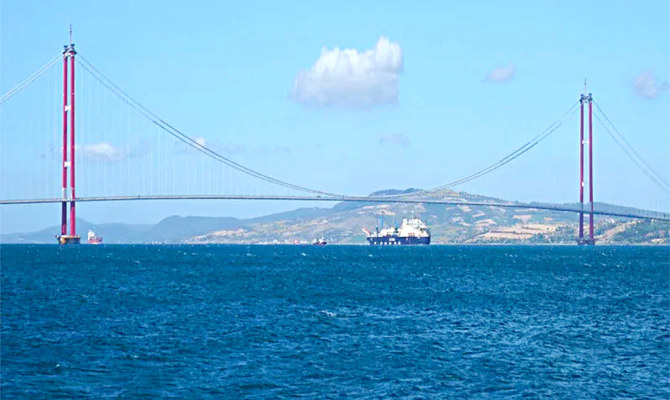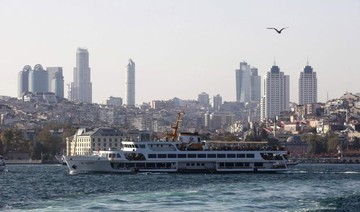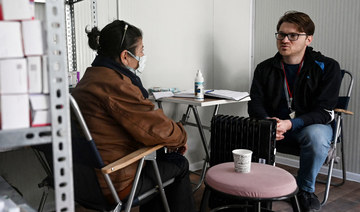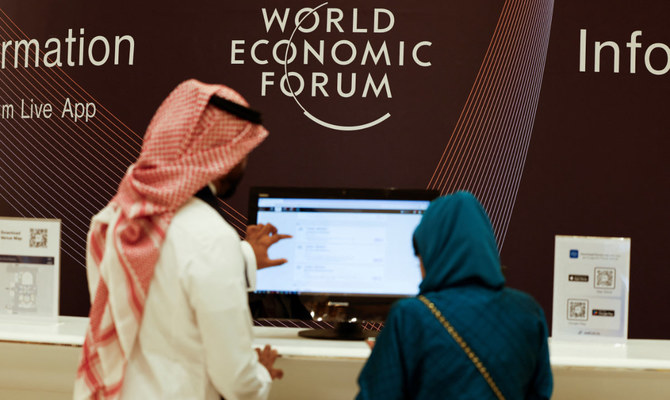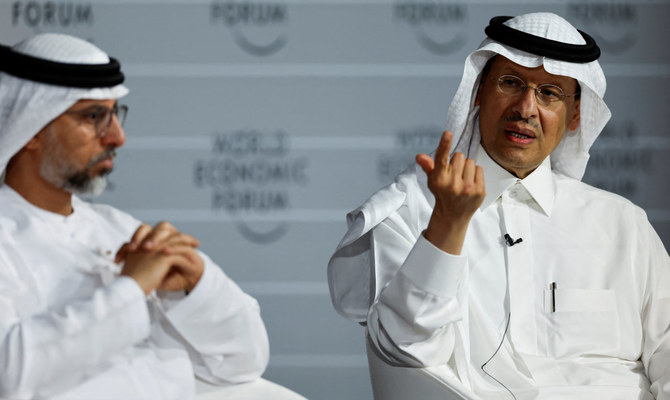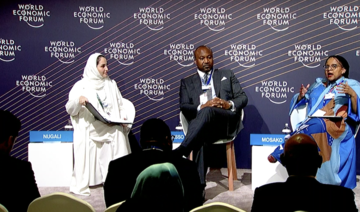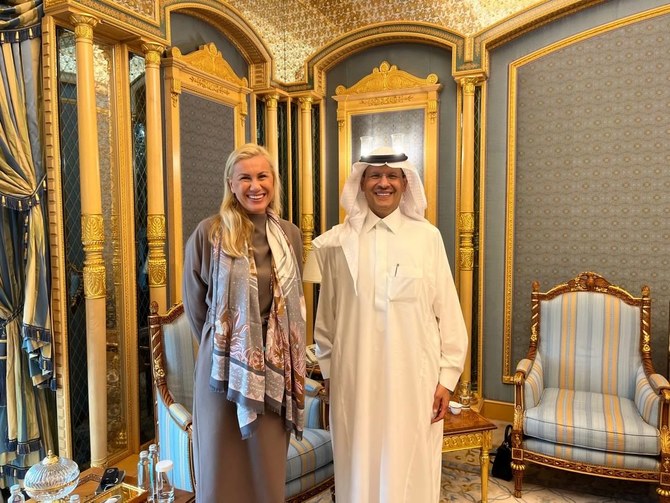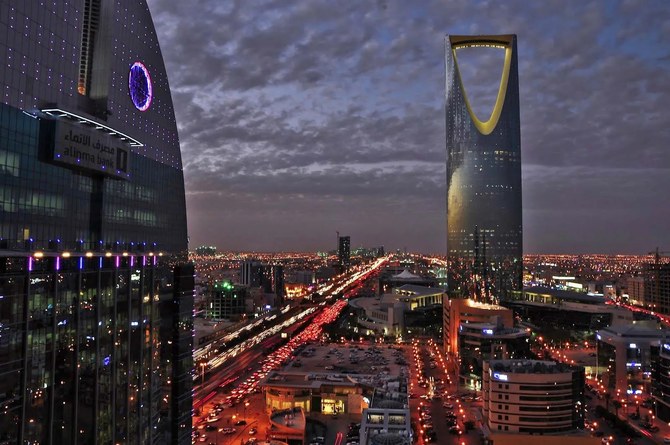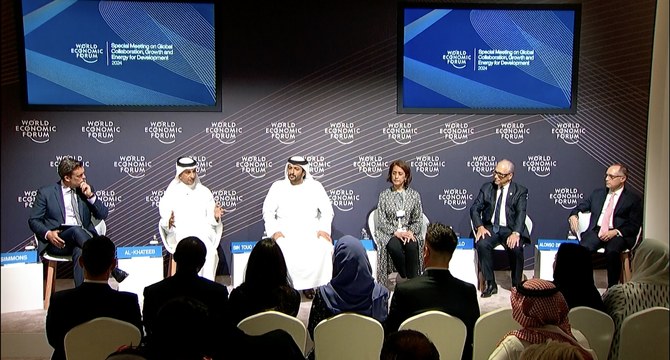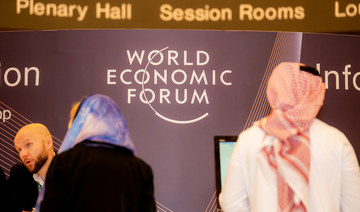ANKARA: Ahead of the approaching elections, Turkiye has announced the beginning of natural gas production from the biggest field in the Black Sea from 8:23 p.m. on April 20, marking the centennial of the Turkish republic this year.
The move is expected to reduce the country’s foreign dependence on energy and to cut household bills.
For a country that consumes about 53 billion cubic meters of natural gas per year, the production from this new field will be cheaper than imported gas, it was previously announced by Energy Minister Fatih Donmez.
The Sakarya offshore field, from where Turkiye will produce natural gas jointly with Turkish Petroleum, Schlumberger NV and Subsea 7 SA, will supply 10 million cubic meters per day in the beginning, with an expected rise to 40 million cubic meters by 2028 in the second stage.
The field is believed to hold about 710 billion cubic meters of recoverable reserves.
But how much Turkiye, which has pipeline connections with Bulgaria and Greece, could export this non-Russian gas to European markets is still unknown.
Madalina Sisu Vicari, an independent expert on energy geopolitics, told Arab News recently that the Sakarya gas field “definitely has an important economic value: it is the biggest gas field discovered so far in the Black Sea and the largest in Turkiye’s history.
“The project is of immense national importance for Turkiye, which is near-totally reliant on energy imports. The country’s near-total dependence on fossil fuel imports has always triggered significant vulnerabilities, both economic and geopolitical.”
In 2022, Turkiye’s bill for energy imports, driven by the surge in oil and gas prices, rose by 90 percent, compared with the previous year, and totaled $96.55 billion.
Sisu Vicari thinks that Russia’s position as Turkiye’s dominant gas supplier — albeit decreasing but still totaling almost 40 percent of market share last year — has been bringing important challenges for Turkiye’s geopolitical balancing policy, especially in the context of the Ukraine war.
“The gas production from the Sakarya gas field could make a significant contribution to the development of the Turkish energy industry and the growth of the economy as it can supply between 25 percent and 30 percent of the country’s domestic demand, which is likely to bolster Turkiye’s own energy security and economic welfare by slashing the bill of energy imports, narrowing the account deficit, and eventually reducing the domestic energy prices,” she said.
According to Sisu Vicari, the domestic gas production could also grant Turkiye more leverage in its bilateral relations with Russia, but it remains to be seen if Ankara is willing to convert it into geopolitical and geo-economics gains, and how they would be translated into policy actions.
“Sakarya gas field’s production could, theoretically, play a role in Turkiye’s aim to become a gas hub. Nevertheless, the concept of the gas hub is not yet clarified: a hub for different suppliers who negotiate and buy gas, or another pipeline project like TurkStream which only passes through Turkiye,” she said.
Furthermore, according to Sisu Vicari, there is another element of the gas hub that is not clear yet, which is the possibility of Russian gas using the hub. “This is a critical element because it could contribute to Gazprom’s regional position consolidation, in the context of (the) EU’s efforts to ditch Russian energy,” she said.
For Pinar Ipek, an expert on energy security from TOBB Economy and Technology University in Ankara, Turkiye’s energy dependence on Russia remains a challenge in light of regional energy geopolitics.
“Turkiye consumes between 50 and 58 billion cubic meters depending on its economic growth rate and electricity demand. Turkiye’s natural gas imports from Russia as a percentage of total natural gas imports peaked in 2011 at 58 percent, while on average the imports have been 54 percent between 2011 and 2021. In 2021, its percentage increased to 44.9 percent,” she told Arab News.
Ipek said that Turkiye has an asymmetric interdependence with Russia in regional energy geopolitics although it tries to reduce the share of pipeline-bounded natural gas imports.
“The significance of natural gas production from the Sakarya offshore field stems from its contribution to reducing any risks of natural gas cuts in existing pipelines from Russia or Iran,” she said.
Iran’s frequent gas cuts in the past exposed Turkiye’s energy insecurity and has been a reminder of the need to secure alternative supplies.
“In January 2022 when Iran halted natural gas flows to Turkiye for 10 days over technical problems, BOTAS, Turkiye’s state-owned pipeline company, had to order natural gas-fueled power plants to reduce their gas use, while TEIAS, Turkiye’s state-owned electricity transmission system operator, had to impose 72 hours (of) power cuts in industrial zones,” Ipek added.
Nevertheless, Ipek believes that annual gas supply from this field is not sufficient for Turkiye’s current energy needs.
“It is insufficient for Turkiye’s economic recovery or energy security given its current energy demand that requires larger volumes of natural gas imports unless there are substitutes, especially in electricity production,” Ipek said.
But Ipek also suggests that the field is important because of European energy needs for non-Russian natural gas in the aftermath of the war between Russia and Ukraine.
“Accordingly, Turkiye can facilitate its long-awaited aspiration to be a natural gas hub, if it can meet the conditions. One of the conditions to be a natural gas hub is satisfying the market mechanisms for a pricing/trading location such as spot pricing, (and) trading of natural gas volumes allocated in the pipelines,” she said.
“However, Turkiye has currently no rights to re-export gas that has been transported through the TANAP or TurkStream. Moreover, the government’s recent proposal for restructuring/unbundling of the BOTAS, and delegating rights for management of unbundled firms to the president, as well as its closer relations with Russia in energy cooperation casts doubt on the required market mechanisms for a natural gas hub,” Ipek added.



